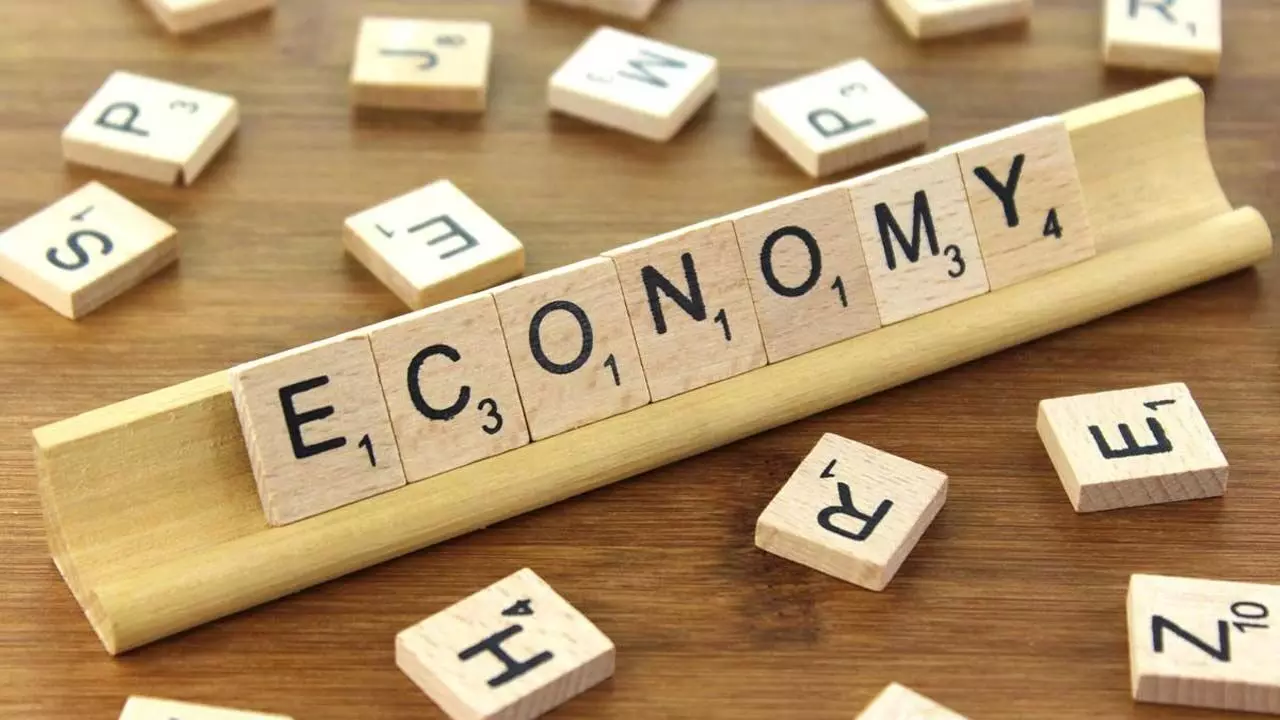- Home
- /
- Business/Economy
- /
- Economist outlines...
Economist outlines policies to bridge poverty gap in the nation

Economist outlines policies to bridge poverty gap in the nation Dr Benjamin Omoniyi, a developmental economist, on Friday expressed optimism that the Federal Government can address the socio-economic imbalances in the country through innovative policies. The economist, who made this known in an interview with newsmen in Lagos, insisted that government must introduce policies aimed […]
Economist outlines policies to bridge poverty gap in the nation
Dr Benjamin Omoniyi, a developmental economist, on Friday expressed optimism that the Federal Government can address the socio-economic imbalances in the country through innovative policies.
The economist, who made this known in an interview with newsmen in Lagos, insisted that government must introduce policies aimed at bridging the widening income gap among its citizens.
Omoniyi of the Department of Economics, Joseph Ayo Babalola University, Ara Ikeji, Osun, noted that the harshness of poverty and hunger was more recognised in Sub-Saharan African countries.
He identified ineptitude on the part of government toward the poor, extreme income inequality, inflation, corruption, insecurity, unemployment, over-population, inadequate education, environmental degradation, lack of political leadership will as hijackers to various poverty alleviation initiatives.
The economist also noted that the President Muhammadu Buhari’s administration’s focus on corruption had generated gaps in other areas of the economy.
Omoniyi claimed that the sad development had resulted in loss of welfare (reduced standard of living) and by ripple effect, increased magnitude of poverty and hunger in Nigeria.
He suggested that the current challenges could be addressed by creating vast opportunities for employment, reducing unequal and highly concentrated patterns of asset ownership and establishing conducive environment for business operations.
The economist advised consolidating the process of wage determination under a single entity for both civil servants and political office holders.
“Government should as well make politics a part-time business rather than the present full-time appointment.
“This will create excess reserves that may generate increased employment and income which may then reduce poverty and hunger in Nigeria.
Omoniyi, in addition, urged the government to address that the practice of dual-economy which had worsened the situation with the urban population enjoying a great deal of conveniences that the inhabitants of the rural areas lacked.
“These differences create a great deal of socio-economic imbalances which made rural dwellers to suffer income inequality, low income and low productivity etc which emanated from vicious cycles of poverty.
“This means that not less than 80 per cent of Nigerians are now poor against less than 70 per cent that were poor before the present administration,’’ the economist said.
According to him, with the above, the poor will earn more income to educate their children, have improved standard of living and take care of medical expenses which will aid their improved productivity so that they can contribute to national development.
“Improved education will therefore, sustain this group because they are opened to greater opportunities and will be able to engage in national decisions and political discussions,’’ he said.
Omoniyi , however, urged the Federal Government to also engage progressive tax structure to bridge the gap between the rich and the poor.
A measure, he said, would help to uplift the 80 per cent of the populace who were said to be poor.
According to him, tax policies should be structured in a way that upper income groups are heavily taxed, while lower income groups are lightly taxed or enjoy tax waiver where possible.
In the area of human capital development, he urged the government to introduce free education up to Senior Secondary School to enable the children of the poor become enlightened to access greater opportunities.
Equally, government should improve on the inclusion of entrepreneurship in the curriculum of secondary schools in Nigeria so that graduates at such level of education might become entrepreneurs rather than seeking unavailable white-collar employment.
He advised that the implementation of policies which encourage improved participation in all facets of agriculture with the government providing land and guaranteed sources of finance for intending and existing farmers, particularly the rice farmers.
“By so doing, the policies to ban or reduce the importation of rice will gradually be adhered to and an increase in level of engaged manpower will boost production of food,” he said.
“Should these policies be introduced by the present administration, they will at the end be blessed for tackling and reducing poverty and hunger by 2023 at the end of the tenure,” Omoniyi said.
Source: NAN
Photo Credit: Google




